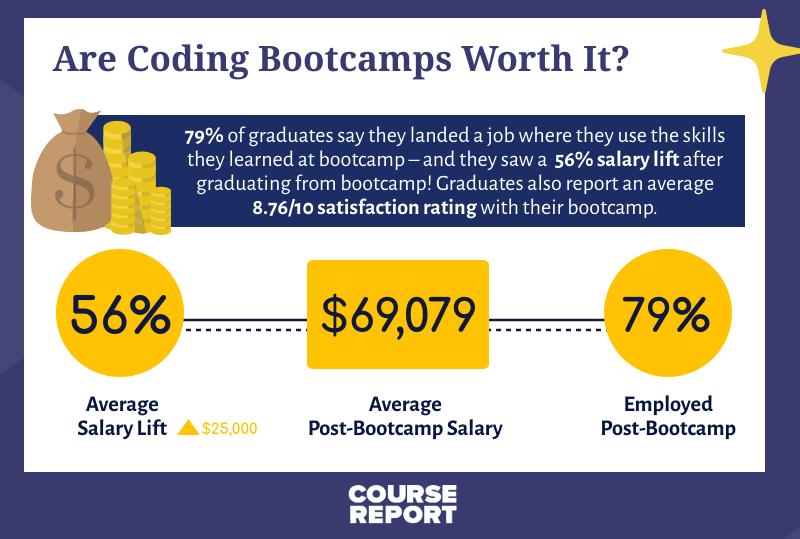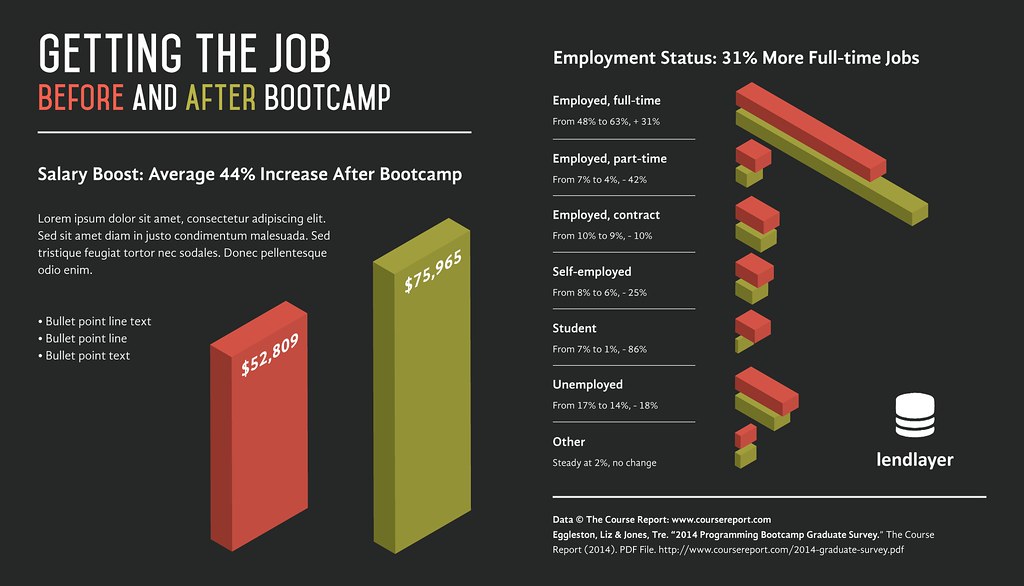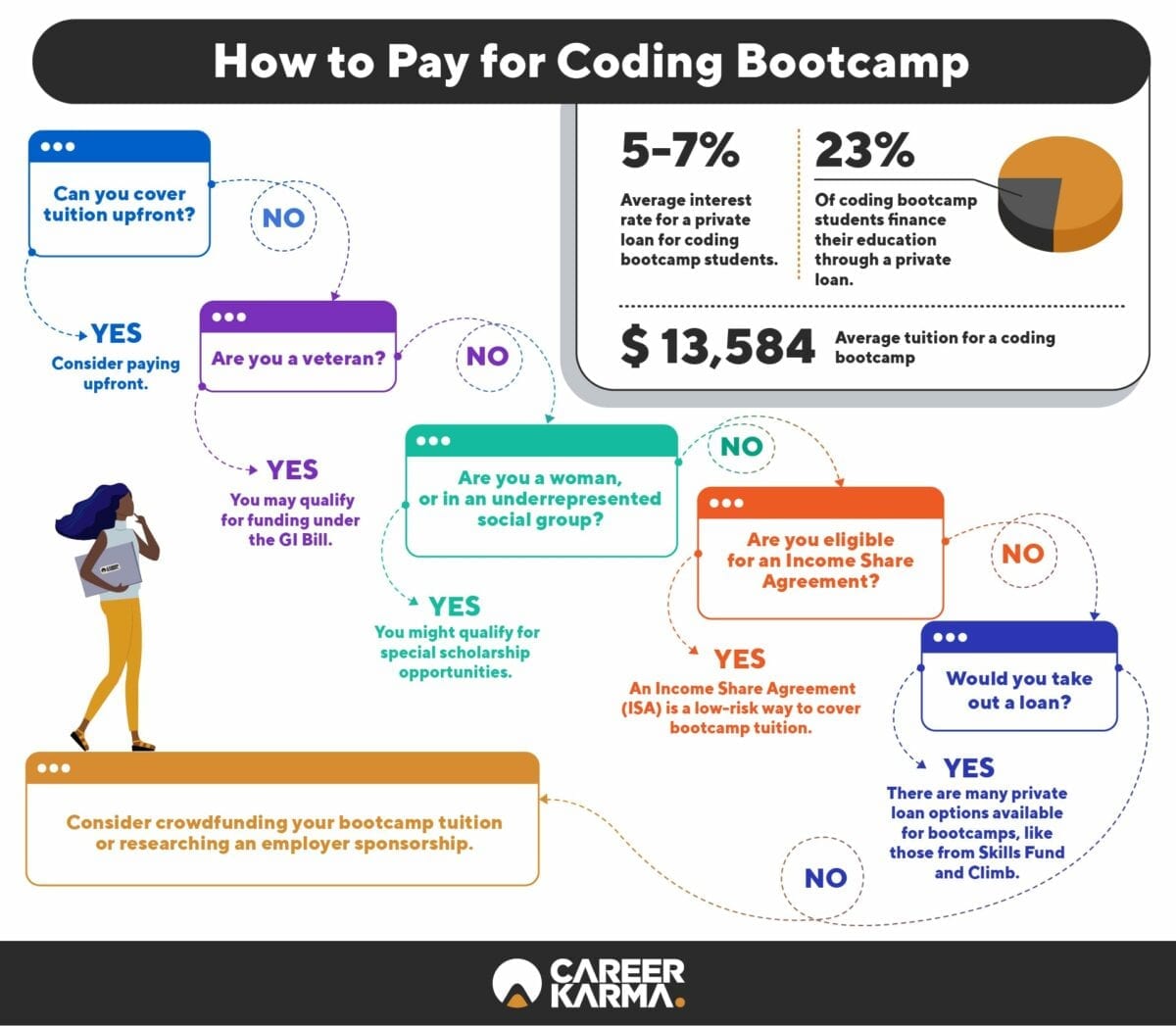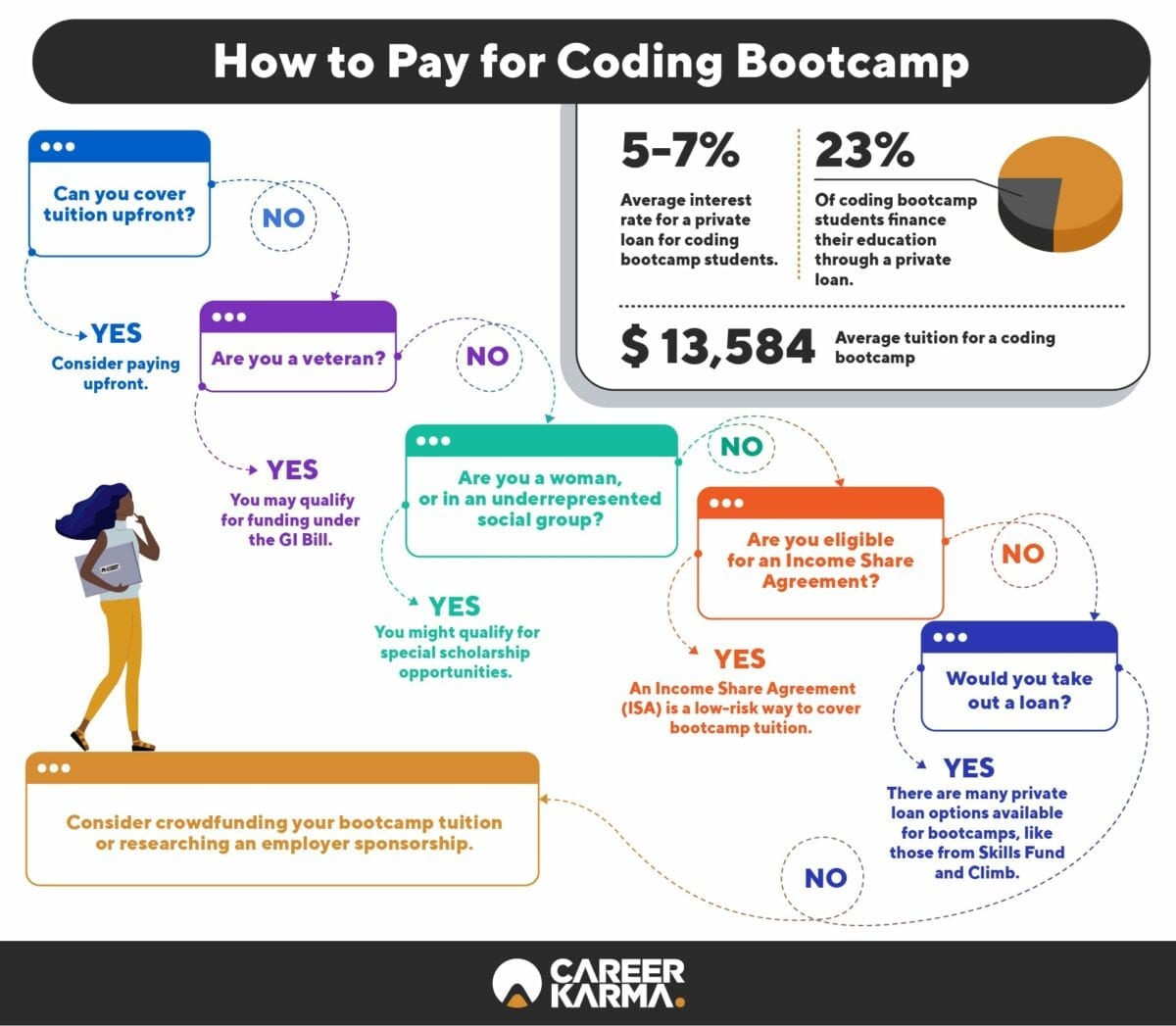Factors Affecting Post-Bootcamp Income

The salary a coding bootcamp graduate earns is rarely solely determined by the bootcamp itself. Numerous factors significantly influence post-bootcamp income, creating a wide range of potential outcomes. Understanding these factors is crucial for setting realistic expectations and developing a strategic career path. This section explores the key elements that impact earning potential.
Prior Experience and Educational Background Influence Earning Potential
Prior experience, particularly internships or relevant work experience, significantly boosts a graduate’s earning potential. A candidate with a strong internship record demonstrating practical skills and a proven ability to work in a team environment will often command a higher starting salary than a graduate with no prior experience. Similarly, a related degree, even if not directly in computer science, can demonstrate a foundation of technical aptitude and problem-solving skills, leading to better job prospects and higher compensation. For example, a bootcamp graduate with a prior internship at a tech company and a bachelor’s degree in mathematics might easily secure a higher-paying role compared to a graduate with no prior experience and a less relevant academic background.
Junior Developer Salaries Versus Advanced Skills
Junior developer roles typically offer lower salaries than positions requiring more advanced skills. While a junior developer might focus on specific tasks within a larger project, a developer with more advanced skills, gained through independent projects or further learning, often commands a significantly higher salary. These advanced skills could include expertise in specific programming languages (like mastering Go or specialized frameworks like React Native), proficiency in cloud technologies (like AWS or Azure), or a deep understanding of specific development methodologies (like Agile or Scrum). For instance, a junior developer might earn $60,000 annually, while a developer with expertise in cloud-based infrastructure and several years of experience could earn $100,000 or more.
Career Progression and Salary Increases for Bootcamp Graduates
The following flowchart illustrates a typical career progression path for a coding bootcamp graduate, highlighting the associated salary increases. Note that these are estimates and actual salaries will vary depending on location, company size, and individual performance.
Illustrative Career Progression Flowchart
Imagine a flowchart with boxes and arrows. The first box would be “Coding Bootcamp Graduate” with a starting salary range of $50,000 – $70,000. An arrow points to the next box: “Junior Developer (1-2 years experience)” with a salary range of $60,000 – $90,000. Another arrow leads to “Mid-Level Developer (3-5 years experience)” with a salary range of $80,000 – $120,000. A final arrow points to “Senior Developer/Team Lead (5+ years experience)” with a salary range of $100,000 – $150,000+. The salary ranges are indicative and not fixed. Each step represents increased responsibility, skill mastery, and, consequently, higher compensation. Lateral movements are possible, for example, a mid-level developer might transition to a specialized role like a DevOps Engineer with a potentially different salary trajectory.
Bootcamp Cost vs. Return on Investment (ROI): How Much Can You Make After Coding Bootcamp

The decision to enroll in a coding bootcamp is a significant financial commitment. Understanding the potential return on investment (ROI) is crucial for prospective students to make an informed choice. This section examines the costs associated with bootcamps and explores how those costs compare to potential post-bootcamp salary increases. We’ll analyze various scenarios to illustrate the timeframe for recouping the initial investment.
Bootcamp costs vary significantly depending on factors such as program length, location, and the institution’s reputation. Tuition fees represent the most substantial expense, but additional costs, including living expenses, materials, and potential relocation fees, must also be considered. A comprehensive understanding of all associated expenses is vital for accurate ROI calculation.
Average Bootcamp Costs and Associated Expenses
The average cost of a coding bootcamp in the United States ranges from $10,000 to $20,000, although some programs can cost significantly more or less. Tuition fees typically constitute the largest portion of this cost. However, living expenses, which can vary widely depending on location, must be factored in. Students in major metropolitan areas like San Francisco or New York City will likely face higher living costs than those in smaller cities. Additional expenses such as purchasing a laptop, software licenses, and potentially relocation costs should also be included in the total cost calculation. For instance, a student attending a 12-week bootcamp in New York City might face tuition of $15,000, plus $10,000 in living expenses and $1,000 for materials, resulting in a total cost of $26,000.
ROI Calculation and Examples
Calculating the ROI of a coding bootcamp involves comparing the total cost of the program to the increase in earning potential after graduation. The formula for calculating ROI is:
ROI = (Net Profit / Cost of Investment) x 100
. In this context, the net profit is the difference between the increased annual salary and the total cost of the bootcamp. The cost of investment is the total cost of the bootcamp, including tuition and all associated expenses.
Let’s consider two examples:
Example 1: A student spends $18,000 on a bootcamp and secures a job paying $70,000 annually, while previously earning $40,000. Their annual increase is $30,000. To recoup their investment, it would take approximately 7 months ($18,000 / $30,000 per year * 12 months/year).
Example 2: A student invests $12,000 in a bootcamp and obtains a job paying $60,000 annually, having previously earned $35,000. Their annual increase is $25,000. In this scenario, it would take approximately 6 months ($12,000 / $25,000 per year * 12 months/year) to recoup their investment.
Bootcamp Cost vs. First-Year Salary: Time to Recoup Investment
| Bootcamp Cost (Tuition + Expenses) | Pre-Bootcamp Annual Salary | Post-Bootcamp Annual Salary | Annual Salary Increase | Approximate Time to Recoup Investment (Months) |
|---|---|---|---|---|
| $15,000 | $45,000 | $70,000 | $25,000 | 7 |
| $20,000 | $50,000 | $85,000 | $35,000 | 7 |
| $12,000 | $30,000 | $55,000 | $25,000 | 6 |
Illustrative Case Studies

How much can you make after coding bootcamp – The following case studies illustrate the diverse career paths and financial outcomes experienced by individuals after completing coding bootcamps. These examples highlight both the potential rewards and the challenges inherent in this intensive learning and career transition process. While individual results vary significantly, these narratives offer valuable insights into the realities of post-bootcamp life.
Case Study 1: Sarah – From Marketing to Web Developer
Sarah, a marketing professional with five years of experience, felt stagnant in her career. Seeking a more fulfilling and lucrative path, she enrolled in a full-stack web development bootcamp. The intensive 12-week program challenged her, requiring long hours of study and demanding projects. She excelled, however, leveraging her existing analytical skills and problem-solving abilities. Upon graduation, Sarah secured a junior web developer position at a mid-sized tech company, earning $65,000 annually. Within two years, her salary increased to $80,000 due to her strong performance and the acquisition of new skills, including proficiency in React and Node.js. Sarah credits her success to her dedication during the bootcamp, her proactive networking efforts, and her ability to quickly adapt to the fast-paced environment of the tech industry. She faced challenges with imposter syndrome initially but overcame it by actively seeking mentorship and celebrating her achievements.
Case Study 2: David – Career Changer Finds Success in Data Science
David, previously a teacher, decided to transition into the higher-paying field of data science. He chose a data science bootcamp known for its strong curriculum and career services. The program was rigorous, demanding a strong grasp of mathematics and statistics. David, though initially intimidated, persevered, leveraging online resources and collaborating with classmates. He actively participated in hackathons, building his portfolio and demonstrating his skills to potential employers. After completing the bootcamp, he secured a data analyst role at a financial technology startup, earning $72,000 per year. His salary grew to $90,000 within 18 months as he gained experience and mastered new tools like Python and SQL. David’s challenge was bridging the gap between his teaching background and the technical demands of data science. He addressed this by dedicating extra time to self-study and seeking out practical projects to demonstrate his proficiency.
Case Study 3: Maria – Freelance Success After Bootcamp, How much can you make after coding bootcamp
Maria, a recent college graduate with a degree in English Literature, pursued a front-end web development bootcamp to gain practical skills and launch a freelance career. She was drawn to the flexibility and autonomy of freelance work. The bootcamp provided her with the technical foundation she needed, but she also focused heavily on building a strong online portfolio and networking with potential clients. Maria actively participated in online communities and forums, showcasing her projects and building her reputation. She began taking on small freelance projects while still in the bootcamp, gradually increasing her rates as her skills and experience grew. Within a year of graduation, Maria was earning a comfortable income of $70,000 annually, working on a variety of projects for diverse clients. Her biggest challenge was managing her time effectively and consistently marketing her services. She overcame this by implementing project management tools and establishing a consistent marketing strategy.


Tim Redaksi